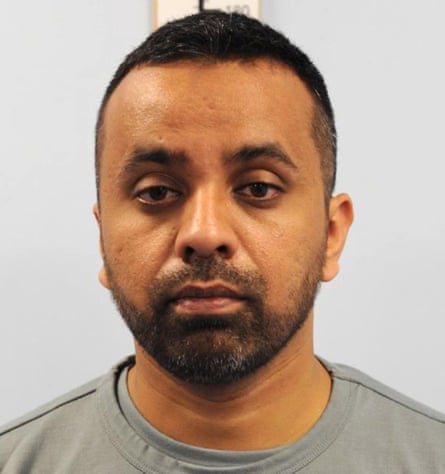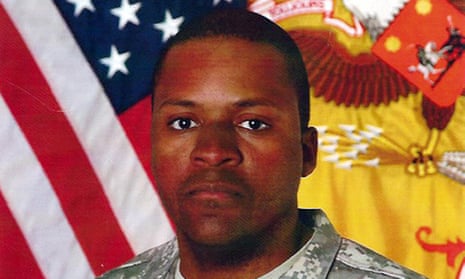A London black-cab driver has become the first person to be convicted in a British court for taking part in the Iraqi insurgency after a jury found him guilty of making bombs to kill US soldiers.
Anis Abid Sardar, 38, from Wembley, built improvised explosive devices (IEDs) in Syria, which were planted on a road running west of Baghdad throughout 2007. Sardar was convicted of murder and conspiracy to murder at London’s Woolwich crown court.
One of the bombs caused the death of 34-year-old Sgt First Class Randy Johnson, of 2nd Stryker cavalry regiment, when it hit the armoured vehicle he was travelling in on 27 September 2007.
Sue Hemming, head of special crime and counter-terrorism at the Crown Prosecution Service, said: “This was a landmark prosecution that shows we will do everything in our power to ensure that international borders are no barrier to terrorists in the UK being brought to justice for murder committed anywhere in the world.

“Anis Sardar is a highly dangerous man who created bombs so large that not only did they tragically kill Sgt Randy Johnson, but they put other lives in danger and caused significant damage to heavily armoured US military vehicles.”
The blast that killed Johnson blew a hole in the bottom of the vehicle beneath where he was standing. Attempts to save his life on board a Medevac helicopter failed.
He was posthumously awarded the Purple Heart, which honours members of the US military killed or injured while serving.
Mark Aggers, the gunner on the Stryker vehicle, was left with serious shrapnel wounds and three other servicemen suffered concussions in the blast near the road between Baghdad and Abu Ghraib prison.
Three other bombs were linked to Sardar, two of which were recovered intact and the other safely detonated by a bomb disposal team. But two soldiers from 2nd battalion 5th cavalry regiment were seriously injured when a sniper shot them as they guarded the latter device on 20 March 2007.
The IED was safely detonated but caused a massive explosion and a cloud about 45 metres high (150ft), the court heard.
Sardar was randomly stopped at Heathrow and his fingerprints were taken as he made his way back to the UK from Syria two months after Johnson was killed.
He was caught seven years later after officials at the FBI’s terrorist explosive device analytical centre found those fingerprints on two of the bombs.
Police and prosecutors have not detailed how the British and US authorities worked together to identify Sardar as a suspect.
His fingerprints were not on the device that killed Johnson but all four bombs bore those of his co-conspirator Sajjad Adnan. Prosecutors said the pair worked together and with others to build and plant the IEDs. Adnan, who is not British, was arrested after the bombings and handed over to the Iraqi authorities. His whereabouts are unknown.

Sardar originally denied to police that he had been involved in bombmaking but on the second day of his trial admitted that fingerprints found on two of four devices linked to the case were his.
He maintained that he was innocent, telling the jury that he became involved in the Iraqi insurgency to protect his fellow Sunni Muslims from Shia militias and that he had not targeted US soldiers. Sardar blamed “the likes of Dick Cheney, George Bush and Tony Blair” for their deaths.
In 2012, officers who were searching his London home as part of a separate investigation found an Arab-language bombmaking manual with references to Islam on a computer disc. Sardar had claimed that he travelled to Syria to learn Arabic.
A jury of seven women and five men took 11 hours to find him guilty by a majority of 11-1 on the charge of murder and unanimously on the conspiracy to murder count.
Hemming said: “Although Anis Sardar’s fingerprints were found only on two of the bombs, it is beyond doubt that he was part of a joint enterprise to make four such devices, and potentially many others, given their similarity and location. He knew precisely what he was doing and was working with murderous intent against coalition forces.”
Mr Justice Globe said he would sentence Sardar on Friday.
